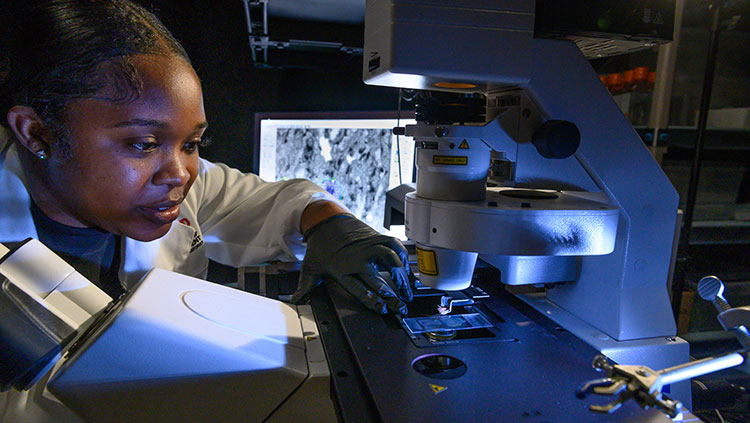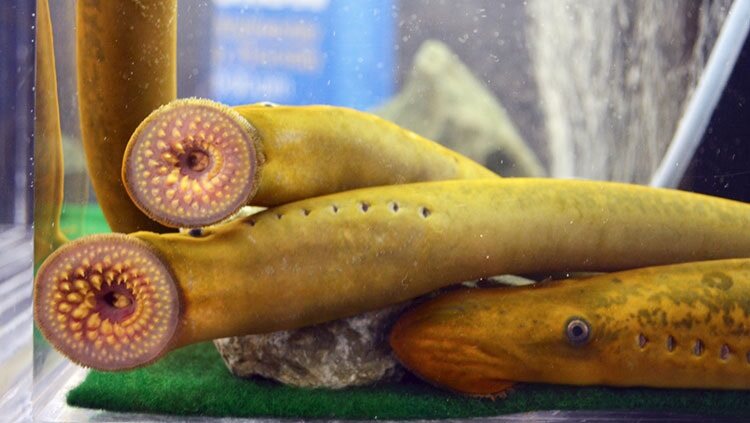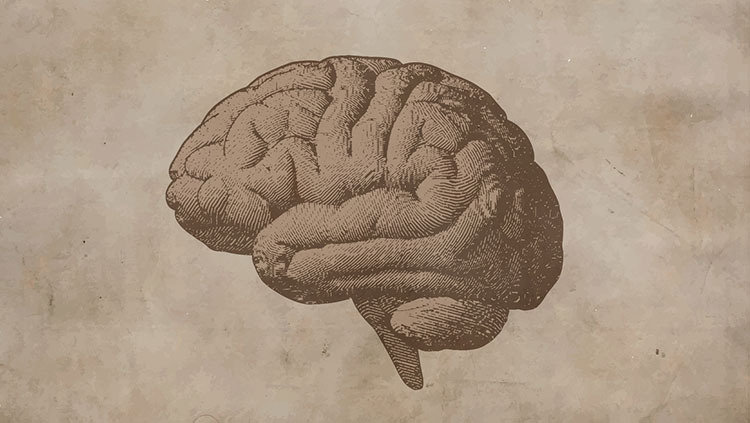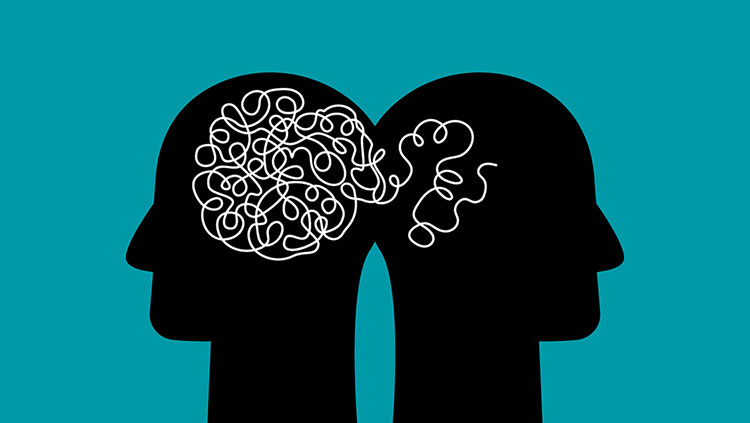ICYMI: Space Travel Increases Brain Volume in Astronauts
- Published24 Apr 2020
- Author Alexis Wnuk
- Source BrainFacts/SfN

These were the top neuroscience stories for the week of April 13, 2020.
Space Travel Increases Brain Volume in Astronauts
Many astronauts notice their vision deteriorates during extended stints in space. That may be because living in a microgravity environment causes the brain to expand, putting pressure on the optic nerve, researchers reported April 14 in Radiology. The team scanned the brains of 11 astronauts prior to their 6-month missions on the International Space Station. Then, they compared those scans to scans taken at multiple timepoints up to a year after their return from space. The astronauts’ brains expanded by about 2% and the ventricles — cavities in the brain containing cerebrospinal fluid — expanded more than 10%. Even after a full year back on Earth, their brains were still bigger than they were pre-flight.
Big picture: Gravity normally pulls fluid down toward the feet. But in the microgravity environment of the International Space Station, fluid can pool in the brain, causing it to expand.
Read more: Long space flights can increase the volume of astronauts’ brains (New Scientist)
The Gut-Brain Connection Behind Sugar Cravings
A new study reveals the neural pathway behind our sweet tooth — and why artificial sweeteners often fail to satisfy it. Neurons in the gut sense sugar and drive sugar preference in mice, researchers reported April 15 in Nature. The researchers gave mice sugar water or water sweetened with a sugar substitute and measured activity in their brains. Only the sugar water activated an area of the brainstem involved in taste perception. This happened even if the mice couldn’t taste the sweetness: in one part of the experiment, the researchers blocked the mice’s sweet taste receptors. In another, they delivered the sugary beverages directly to the gut via a catheter. Additional experiments revealed neurons in the vagus nerve — the long cranial nerve connecting the brain to internal organs — sensed sugar in the gut and signaled the brainstem.
Big picture: Artificial sweeteners can’t fool the brain. That may be one reason the proliferation of sugar substitutes has failed to combat the obesity and diabetes epidemics in the U.S.
Read more: Humans’ “Unquenchable Desire” for Sugar Stems From an Unexpected Place (Inverse)
Research on the Mental Health Impacts of Coronavirus Is Urgently Needed, Experts Say
Understanding and mitigating the mental health impacts of the coronavirus pandemic is an urgent priority, an international panel of researchers wrote April 15 in the journal Lancet Psychiatry. The panel of 24 mental health experts cited recent polls conducted in the U.K., which found widespread concern about social isolation and financial difficulties, as well as increased stress, anxiety, and depression in survey respondents.
Big picture: Quarantines and social distancing are crucial for slowing the spread of the coronavirus and easing the strain on healthcare systems. But, social isolation and loneliness are risk factors for many mental health problems, the researchers write.
Read more: Experts warn of urgent need for Covid-19 mental health research (CNN)
CONTENT PROVIDED BY
BrainFacts/SfN


















